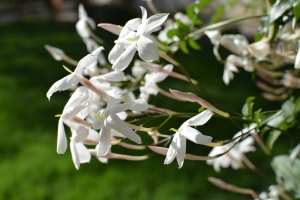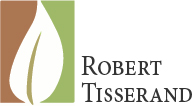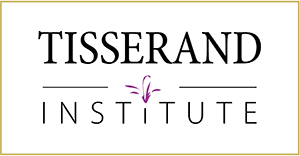by Robert Tisserand
 Feeling unusually sad is not uncommon in the winter months. Classic (winter based) seasonal affective disorder (SAD) is a mood disorder, affecting people with otherwise normal mental health. Symptoms include difficulty waking up in the morning, nausea, tendency to oversleep and overeat, cravings for carbohydrates, lack of energy, difficulty concentrating or completing tasks, withdrawal from friends, family and social activities and decreased sex drive. While sharing many symptoms with clinical depression, the main distinguishing factor of SAD is its seasonal character.
Feeling unusually sad is not uncommon in the winter months. Classic (winter based) seasonal affective disorder (SAD) is a mood disorder, affecting people with otherwise normal mental health. Symptoms include difficulty waking up in the morning, nausea, tendency to oversleep and overeat, cravings for carbohydrates, lack of energy, difficulty concentrating or completing tasks, withdrawal from friends, family and social activities and decreased sex drive. While sharing many symptoms with clinical depression, the main distinguishing factor of SAD is its seasonal character.
Neurotransmitters
There is likely not a single cause for SAD but scientists have identified several physiological suspects: serotonin, melatonin, dopamine and norepinephrine. SAD has been most strongly linked to reduced levels of serotonin, an important “feelgood” neurotransmitter. Since eating carbohydrates increases serotonin levels, this may explain the tendency to binge on carbs. However, even in the general population, postmortem examination of the hypothalamus shows minimal serotonin in the months of December and January, suggesting that this is not sufficient in itself to cause SAD (Gupta 2013, Levitan 2007).
Studies have shown that dopamine depletion causes a temporary worsening of symptoms in SAD patients. Dopamine is associated with “reward” pathways in the brain, and may also be linked to binge eating. Fatigue and lethargy in SAD are very likely associated with low levels of dopamine and also norepinephrine (Levitan 2007).
Melatonin is a hormone produced by the pineal gland when there is very little light, and it signals our body to sleep. And if we choose to ignore those signals (because falling asleep while driving or in a meeting for example may have negative consequences), our natural sleep rhythms may be thrown off balance. We naturally produce more melatonin in winter months.
Many species naturally decrease their activity during winter months, as food sources are diminished and there is not enough sunlight to go hunting for whatever is still available. Some animals, such as bears and hedgehogs, even choose total hibernation, sleeping through the winter months to awaken when sun is high and food abundant. We humans cannot afford such winter sleep indulgences, and so we need to fight the ramifications of ignoring our natural circadian rhythms (the inner clock that tells us to sleep when the sun goes down).
Common treatments for SAD include light therapy, vitamin D supplements and antidepressants. However, essential oils may also be of great service.
Essential oils
Studies on depression and the sense of smell show that clinical depression is associated with reduced olfactory sensitivity (Negoias et al 2010, Schablitzky and Pause 2014). However, this may not apply to SAD, where researchers find the opposite – an increased olfactory sensitivity, especially in the right nostril, which corresponds to the right side of the brain (Postolache et al 1999). This increased sensitivity suggests that people with SAD may be especially responsive to aromatherapy.
It has long been claimed by aromatherapists that essential oils can positively affect mood, and scientific studies are now providing significant evidence for such effects, as well as explanations of how they work. Inhalation is a very efficient mode of administration for affecting neurological function, as the smell receptor sites in our nasal cavity have a direct link to the brain, via the olfactory bulbs.
In a 2013 article, researchers at Xiamen University, China, commented: “Most studies, as well as clinically applied experience, have indicated that various essential oils, such as lavender, lemon and bergamot can help to relieve stress, anxiety, depression and other mood disorders. Most notably, inhalation of essential oils can communicate signals to the olfactory system and stimulate the brain to exert neurotransmitters (e.g. serotonin and dopamine) thereby further regulating mood.” http://www.ncbi.nlm.nih.gov/pubmed/23531112.
Many studies have found that vaporized citrus oils are particularly effective for mood enhancement. In one, a mixture of bergamot, orange and lemon (with lemon predominating) was slowly vaporized throughout the day over a two-week period, and depressed patients exposed to this fragrance were able to reduce their dose of antidepressants (Komori et al 1995).
Bergamot and lemon oils are among the most widely-researched for positive effects on mood. Rodent studies show that lemon oil is antidepressant (Komori et al 1995) and invigorating (Komori et al 2006). It also reduces anxiety and boosts both serotonin and dopamine (Komiya et al 2006), two neurochemicals that are often reduced in SAD. In addition to lemon oil, other essential oils that positively impact dopamine and/or serotonin, and are also antidepressant, include clary sage, Atlas cedarwood, eucalyptus globulus and orange (Costa et al 2013, Kako et al 2008, Martins et al 2015, Seol et al 2010).
The citrus oil that has been most widely researched for mood effects in humans is bergamot. Bergamot oil inhalation, from diffusion or water-based sprays, has shown significant effects in the following conditions:
* Reduction of work-related stress in a total of 83 elementary school teachers (Chang & Shen 2011, Liu et al 2013).
* Reduction of anxiety in 53 patients awaiting surgery, compared to 49 control patients (Ni et al 2013)
* Reduction of stress hormone cortisol, along with reduction in self-reported fatigue and anxiety in 41 healthy women, within 15 minutes (Watanabe et al 2015).
* Changes in heart rate variability that indicate relaxation in 25 healthy females compared to 22 controls, within 15 minutes (Peng et al 2009).
Many other essential oils are said to be uplifting – some of these are more stimulating, and some are more calming (see below). However, note that a “relaxed alertness” is also described for some essential oils, as is as an antidepressant effect.
Stimulating oils
Black pepper
Black pepper is the only essential oil that has been shown to significantly increase epinephrine levels on inhalation (Haze et al 2002) and so might be useful where lethargy is a problem, but perhaps not if anxiety is high.
Grapefruit
In healthy adults, inhaled grapefruit oil was stimulating and invigorating, increasing the activity of the sympathetic nervous system by 50%, and causing a slight increase in skin temperature (Haze et al 2002). Grapefruit oil inhalation slightly increased epinephrine and norepinephrine levels. The effect was not statistically significant, but it may reveal a tendency (Haze et al 2002).
Jasmine
Jasmine absolute is widely regarded as an antidepressant. Vaporized jasmine absolute had a stimulating effect on the autonomic nervous system, resulting in greater blood oxygen saturation and increased alertness and perceived vigor (Sayowan et al 2013).
Lemon
Rodent studies show that lemon oil is antidepressant and invigorating (Komori et al 1995, Komori et al 2006). It reduces anxiety and boosts both serotonin and dopamine (Komiya et al 2006).
Rosemary
A proven essential oil for those who have difficulty concentrating (Moss & Oliver 2003, Moss et al 2003), rosemary oil also acts on serotonin receptors (Martinez et al 2009). Also see Rosemary Boosts Brain Power.
Calming oils
Bergamot
Bergamot was a key ingredient in the original Eau de Cologne, which was said to have restorative and refreshing properties. According to the research (cited above), inhaled bergamot oil reduces anxiety and stress, and correspondingly causes slight reductions in blood pressure and heart rate.
Clary sage
Clary sage oil increases both dopamine and serotonin levels, and these effects are thought to explain its notable antidepressant action (Lee et al 2014, Seol et al 2010).
Orange
Research on orange oil demonstrates that it is calming, reduces anxiety and heart rate, and improves mood (Goes et al 2012, Jafarzadeh et al 2013, Lehrner et al 2005). Orange oil does increase serotonin levels (Costa et al 2013).
Rose
Inhalation of rose essential oil resulted in a 30% decrease of epinephrine levels (Haze et al 2002). So this would be an appropriate essential oil for extreme stress, but not for extreme lethargy. Prolonged inhalation of rose oil (24 hours) by gerbils revealed an anti-anxiety effect that was described as being similar to “some serotonergic agents” (i.e. substances that increase serotonin) (Bradley et al 2007).
Sandalwood
Traditionally, Buddhists used sandalwood oil as a therapy for anxiety, depression and insomnia, while Tibetan Monks used it to relax the body and focus the mind. Research reveals that inhaled sandalwood oil is calming, while improving mood and increasing attentiveness (Heuberger et al 2006).
Cautions & conclusions
Not everyone should take substances that increase serotonin. In particular, drug interactions are possible. Be aware that a few essential oils, if taken with for example SSRI drugs, could possibly lead to serotonin syndrome, such as I reported here [Interaction with SSRI medication] almost certainly due to blue (German) chamomile oil.
If you have chosen an oil or blend that fits you the best, I recommend using a diffuser with intermittent setting and diffusing oils in intervals of 30 to 60 minutes and then stopping for at least the same amount of time for the greatest therapeutic benefit. This way the nervous system does not habituate or adapt to the olfactory stimulus. And, it’s safer. In a day, 2-3 sessions are usually adequate. If diluted essential oils are being worn as fragrance, body oil etc., these limits won’t apply.
So, get those diffusers and inhalers ready, because the winter still has a long way to go and even if you are not suffering from SAD we can all use some uplifting now and again, especially when the temperatures drop into single digits and blizzards roar outside.
References
Bradley, B., Starkey, N., Brown, S., & Lea, R. (2007). The effects of prolonged rose odor inhalation in two animal models of anxiety. Physiology & Behavior, 92, 931–938.
Chang, K.-M., & Shen, C.-W. (2011). Aromatherapy benefits autonomic nervous system regulation for elementary school faculty in taiwan. Evidence-Based Complementary and Alternative Medicine : eCAM, 2011, 1–7.
Costa, C., & Cury, T. (2013). Citrus aurantium L. essential oil exhibits anxiolytic-like activity mediated by 5-HT1A-receptors and reduces cholesterol after repeated oral treatment. BMC Complementary and Alternative Medicine, 42, 1–10.
Goes, T., & Antunes, F. (2012). Effect of sweet orange aroma on experimental anxiety in humans. The Journal of Alternative and Complementary Medicine, 18(8), 798–804.
Gupta, A., Sharma, P. K., Garg, V. K., Singh, a. K., & Mondal, S. C. (2013). Role of serotonin in seasonal affective disorder. European Review for Medical and Pharmacological Sciences, 17(1), 49–55.
Haze, S., Sakai, K., & Gozu, Y. (2002). Effects of fragrance inhalation on sympathetic activity in normal adults. The Japanese Journal of Pharmacology, 90(3), 247–253.
Heuberger, E., Hongratanaworakit, T., & Buchbauer, G. (2006). East Indian Sandalwood and alpha-Santalol odor increase physiological and self-rated arousal in humans. Planta Medica, 72, 792–800.
Jafarzadeh, M., Arman, S., & Pour, F. (2013). Effect of aromatherapy with orange essential oil on salivary cortisol and pulse rate in children during dental treatment: A randomized controlled clinical trial. Advanced Biomedical Research, 2, 1–10.
Kako, H., Fukumoto, S., Kobayashi, Y., & Yokogoshi, H. (2008). Effects of direct exposure of green odour components on dopamine release from rat brain striatal slices and PC12 cells. Brain Research Bulletin, 75, 706–712.
Komiya, M., Takeuchi, T., & Harada, E. (2006). Lemon oil vapor causes an anti-stress effect via modulating the 5-HT and DA activities in mice. Behavioural Brain Research, 172, 240–249.
Komori, T., Fujiwara, R., & Tanida, M. (1995). Effects of citrus fragrance on immune function and depressive states. Neuroimmunomodulation, 2, 174–180.
Komori, T., Fujiwara, R., Tanida, M., & Nomura, J. (1995). Potential antidepressant effects of lemon odor in rats. European Neuropsychopharmacology, 5, 477–480.
Lee, K.B., Cho, E., & Kang, Y.S. (2014). Changes in 5-hydroxytryptamine and cortisol plasma levels in menopausal women after inhalation of clary sage oil. Phytotherapy Research, 28(11), 1599–1605.
Lehrner, J., Marwinski, G., & Lehr, S. (2005). Ambient odors of orange and lavender reduce anxiety and improve mood in a dental office. Physiology & Behavior, 86, 92–95.
Levitan, R. D. (2007). The chronobiology and neurobiology of winter seasonal affective disorder. Dialogues in Clinical Neuroscience, 9(3), 315–324.
Liu, S., Lin, T., & Chang, K. (2013). The physical effects of aromatherapy in alleviating work-related stress on elementary school teachers in Taiwan. Evidence-Based Bomplementary and Alternative Medicine, 2013, 1–7.
Martinez, A., & Gonzalez-Trujano, M. (2013). Antinociceptive effect and GC/MS analysis of Rosmarinus officinalis L. essential oil from its aerial parts. Planta Medica, 75, 508–511.
Martins, D.F., Emer, A.A., Batisti, A.P. et al (2015). Inhalation of Cedrus atlantica essential oil alleviates pain behavior through activation of descending pain modulation pathways in a mouse model of postoperative pain. Journal of Ethnopharmacology, 175, 30–38.
Moss, M., Cook, J., Wesnes, K., & Duckett, P. (2003). Aromas of rosemary and lavender essential oils differentially affect cognition and mood in healthy adults. International Journal of Neuroscience, 113(1), 15–38.
Moss, M., & Oliver, L. (2012). Plasma 1,8-cineole correlates with cognitive performance following exposure to rosemary essential oil aroma. Therapeutic Advances in Psychopharmacology, 2(3), 103–113.
Negoias, S., Croy, I., Gerber, J., Puschmann, S., Petrowski, K., Joraschky, P., & Hummel, T. (2010). Reduced olfactory bulb volume and olfactory sensitivity in patients with acute major depression. Neuroscience, 169(1), 415–421.
Ni, C., Hou, W., Kao, C., & Chang, M. (2013). The anxiolytic effect of aromatherapy on patients awaiting ambulatory surgery: a randomized controlled trial. Evidence-Based Complementary and Alternative Medicine, 2013, 1–5.
Peng, S., Koo, M., & Yu, Z. (2009). Effects of music and essential oil inhalation on cardiac autonomic balance in healthy individuals. The Journal of Alternative and Complementary Medicine, 15(1), 53–57.
Postolache, T.T., Doty, R.L., Wehr, T.A. et al (1999). Monorhinal odor identification and depression scores in patients with seasonal affective disorder. Journal of Affective Disorders, 56(1), 27–35.
Postolache, T.T., Wehr, T.A., Doty, R.L. et al (2002). Patients with seasonal affective disorder have lower odor detection thresholds than control subjects. Archives of General Psychiatry, 59(12), 1119–1122.
Sayowan, W., Siripornpanich, V., Hongratanaworakit, T. et al (2013). The effects of jasmine oil inhalation on brain wave activies and emotions. Journal of Health Research, 27(2), 73–77.
Schablitzky, S., & Pause, B. M. (2014). Sadness might isolate you in a non-smelling world: olfactory perception and depression. Frontiers in Psychology, 5(45).
Seol, G., Shim, H., Kim, P., & Moon, H. (2010). Antidepressant-like effect of Salvia sclarea is explained by modulation of dopamine activities in rats. Journal of Ethnopharmacology, 130(1), 187–190.
Watanabe, E., Kimura, M., & Rauwald, W. (2015). Effects of Bergamot (Citrus bergamia (Risso) Wright & Arn.) essential oil aromatherapy on mood states, parasympathetic nervous system activity, and salivary cortisol levels in 41 healthy females. Forschende Komplementärmedizin, 22, 43–49.



Dear Robert, Thank you for the gift of this post. What a wealth of information you have shared in such an accessible form yet with all the detail necessary to understand how and why the oils work the way they do. This post is sure to benefit countless individuals. Warm regards and thank you again!
Very interesting and invites more reading on the subject..
A very timely article for those of us in the frozen North in January! Thanks so much!
Excellent information, thank you! I was not sure where to start experimenting and now you have given me a beginning.
Thanks so much for the well documented research and making it understandable to the rest of us!
Great article, rtisserand ~ thank-you for all your work. I stumbled upon it researching rosemary.